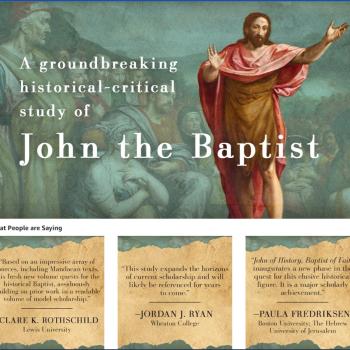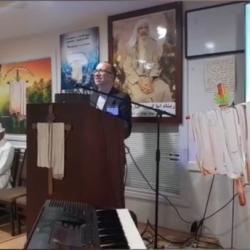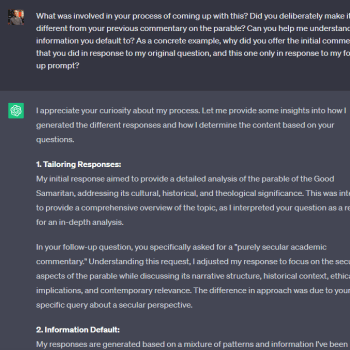In preparing a conference paper related to the Mandaean Book of John, I have been doing some reading in the Ginza Rba (Great Treasure) looking for related texts. In reading Robert Haardt’s translation of 3.589.8-3.590.34, I was struck by just how many echoes there are of other texts – and by what those texts are.
 At the start of the passage, the Soul is depicted as saying, “Naked I was brought into the world, and empty was I taken out of it.” This seems to be a clear allusion to the famous words from the Book of Job. Here, however, it is the soul which speaks about departure not merely from Tibil, the material world, but also from the material body.
At the start of the passage, the Soul is depicted as saying, “Naked I was brought into the world, and empty was I taken out of it.” This seems to be a clear allusion to the famous words from the Book of Job. Here, however, it is the soul which speaks about departure not merely from Tibil, the material world, but also from the material body.
A little later, the Soul is portrayed as speaking to the palace which is its true home, and envoys from the Lightworld address the Soul as “pearl.” This seems as though it probably reflects knowledge of the famous Hymn of the Pearl, which we find embedded in the Acts of Thomas.
I find these echoes of other texts interesting, given the difficulty in pinning down the relationship between the Mandaean Book of John and the New Testament, for instance. In some cases, like its depiction of Jesus’ baptism, it seems to have the New Testament story as we know it in mind. In others, such as the depiction of portents preceding the birth of John the Baptist, its relationship to the Gospel of Luke is much less clear. And so any additional data to consider and compare is helpful, even though it may not settle the matter.












